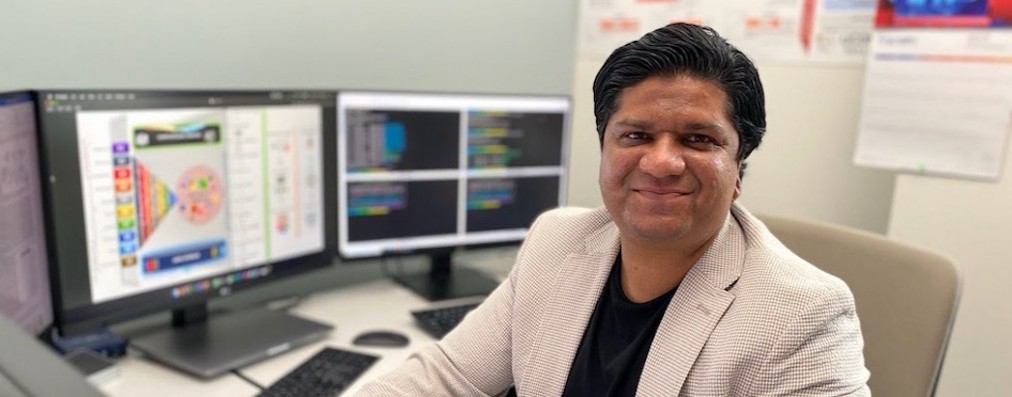News
Q&A: The Future of Precision Medicine. Rutgers Today
Oct 06, 2020
Read complete article here: The Future of Precision Medicine. Rutgers Today.
The new Ahmed Lab at Rutgers Institute for Health is charting the course with advanced data and technology
Precision medicine is a rapidly growing approach to health care that focuses on finding treatments and interventions that work for people based on their genetic makeup, rather than their symptoms.
Zeeshan Ahmed, director of the new Ahmed Lab at Rutgers Institute for Health, Health Care Policy and Aging Research, discusses the future of precision medicine, what needs to be done to successfully analyze the data necessary to develop individualized treatments and the role genetics play during the COVID-19 pandemic.
What new trends do you see emerging in precision medicine?
One emerging trend in precision medicine is the use of artificial intelligence and machine learning to improve the traditional symptom-driven practice of medicine, allowing earlier interventions using advanced diagnostics and tailoring better and economically personalized treatments.
Development of cutting-edge, new artificial intelligence and machine learning–based big data platforms has the potential to revolutionize the field of medicine and allow a high volume of data to be analyzed quickly. While this poses unprecedented challenges in data storage, processing, exchange, and curation, it will ultimately provide us with a better understanding of biology.
But we need to improve procedures for genetic testing in health care settings and integrate the study of genetic and metabolic makeup and function into the traditional health care process. We also need to develop prevention and therapeutic strategies and build a library of information about how to use genetics in health care.
Our lab will continue researching and developing useful analytic tools, modern technologies, and big databases in order to provide better personalized health care.
Ahmed Lab recently launched a new mobile app. How will this help drive precision medicine?
There has been a dramatic increase in the availability of genetic and health data over the past decade resulting in a crucial need for databases and technology to effectively store and analyze this wealth of information.
Our lab has initiated a new project to study evolving information about the links between different genes, genetic variants and diseases. We focused on helping researchers, medical practitioners and pharmacists better understand the genetic basis of common diseases.
We developed a mobile app — known as PAS — that allows users, including scientists and health care providers, to quickly and easily search a comprehensive worldwide database of genes, variants and related diseases and drugs.
Our project is focused on humans, but we will be extending research and development to include other species in the future and plan to develop a new web page and online tools.
What should patients know about the PAS app?
Although approaches that combine clinical and genomic information are becoming increasingly common, scientists and health care providers still face the daunting challenge of identifying what genes may be relevant to the part of the body or biological system they are studying, and how variants may impact health in unique ways for each patient. They need standard information to help them make health care decisions.
PAS brings together clinical, genetic and other health data and information to help map health conditions to their corresponding diseases, to benefit all users, including researchers, medical practitioners, pharmacists, life science students and even patients.
Patients can also access detailed information about their disease and prescribed medications. And individuals who have sequenced their DNA/RNA can use the app to easily search and access information on their genes and potential associated health conditions.
The COVID-19 pandemic also has highlighted the useful contribution of the app and our research. Despite many significant scientific and medical discoveries, the genetics of COVID‐19 remains far from clear. PAS allows users to look for and connect relevant information to COVID‐19, including genes, variants, and disease codes in health records.